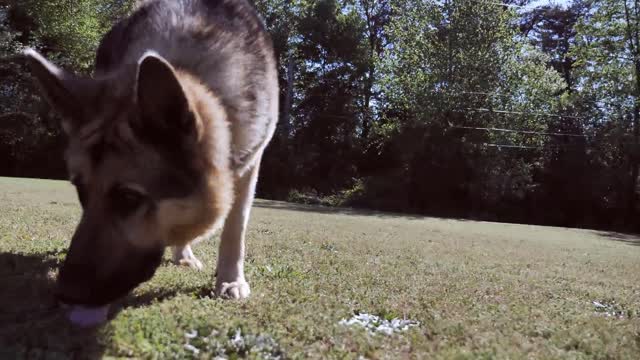Premium Only Content

Understand the probiotic trend in animal nutrition.
Understand the probiotic trend in animal nutrition.
Probiotics are live bacteria or yeasts of different strains that can be added to food or feed. The best transient colonization occurs with microorganisms (MOOGs) such as lactic acid bacteria, which are mostly isolated from the gastrointestinal tract of mammals, and therefore have their best condition for growth and adaptation in them (provided they survive the thermal process and digestion steps prior to their arrival in the intestine).
The genera Lactobacillus, Bifidobacterium, and Streptococcus, for example, are lactic bacteria that colonize the gastrointestinal tract and act by competitive exclusion, adhering by means of fimbriae to the cells of the intestinal epithelium, as well as to the main pathogens. The few pet foods on the market that contain probiotics are restricted to the use of Bacillus sp and yeast (Saccharomyces cerevisiae), because they are considered more resistant microorganisms to the extrusion process. However, these are non-colonizing microorganisms, which only pass through the intestinal lumen along with the food content and do not adhere to the epithelium.
Probiotics have wide application in veterinary practice from the primary immunomodulatory effects beneficial to the intestinal microbiota. They exert a biological effect, promoting a low oxygen tension environment, preventing the growth of pathogenic microorganisms, mainly of the genus Salmonella spp. They also have a chemical effect, producing organic acids that will reduce the pH of the intestinal lumen, in order to inhibit the activity of harmful bacteria (such as Clostridium perfringens). They also promote the growth of beneficial microorganisms (such as Lactobacillus). Probiotics can also produce bacteriocins, which inhibit the development of Salmonella, Escherichia coli, and Staphylococcus, fighting disease-causing pathogens.
In turn, it is important to emphasize that the study of the microbiota of dogs and cats may also have an influence on human health, due to the increasingly close relationship between guardians and pets. Not only does dietary supplementation contribute to the modulation of the microbiota, but also our surroundings, as the individuals we interact with can also shape our microbial communities. A study by SONG and colleagues (2013) observed that dog guardians shared more bacteria with their dogs than with dogs of other guardians, especially in the skin microbiota.
-
 25:51
25:51
DeVory Darkins
16 hours ago $3.56 earnedDemocrats ghosted and stunned by Trump as Routh attempts to off himself after guilty verdict
5.05K44 -
 21:15
21:15
Actual Justice Warrior
14 hours agoJimmy Kimmel DECLARES Victory
5.03K19 -
 49:42
49:42
Liz Wheeler
16 hours agoWHO is Behind ANTIFA? | Ep 176
31.2K14 -
 8:30
8:30
MattMorseTV
16 hours ago $7.61 earnedThis just ENDED Newsom's CAREER.
157K53 -
 17:11
17:11
Nikko Ortiz
14 hours agoIs Poverty Your Fault?
10.7K11 -
 41:10
41:10
The Connect: With Johnny Mitchell
4 days ago $9.89 earnedInside The Sinaloa Cartel's Fight For Survival: How Mexico's Oldest Cartel Is Making It's Last Stand
40.7K17 -
 1:44:47
1:44:47
Side Scrollers Podcast
1 day agoKimmel RETURNS + Twitch University + More! | Side Scrollers
60.2K8 -
 5:43
5:43
GritsGG
1 day agoBest Way To Get Specialist EVERY Game!
34.2K2 -
 LIVE
LIVE
Lofi Girl
2 years agoSynthwave Radio 🌌 - beats to chill/game to
261 watching -
 6:48
6:48
Buddy Brown
13 hours ago $13.32 earnedWatch What Happens When you Set up a "Charlie Tent" at HBCU! | Buddy Brown
167K69